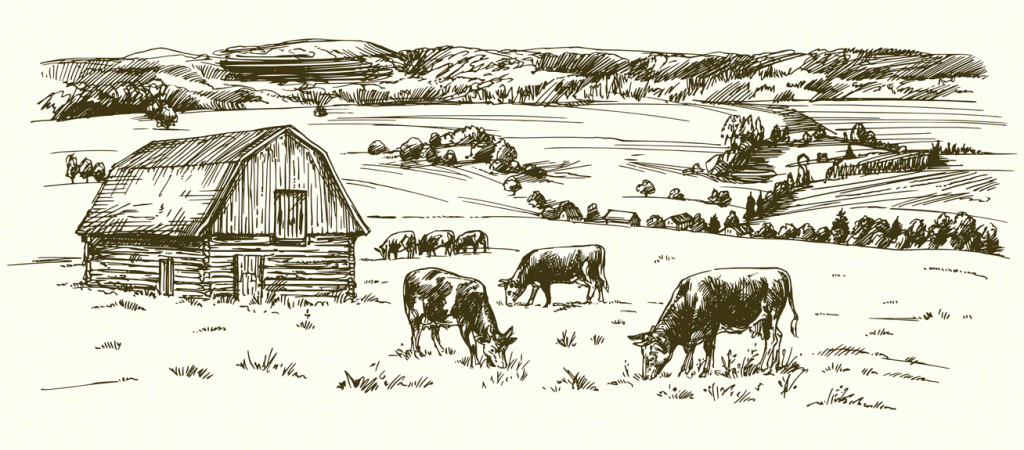America’s Fading Pastoral: Picks of the Week
Who Wants to Run That Mom-and-Pop Market? Almost No One | The New York Times
What happened when Walmart left | The Guardian
When Health Law Isn’t Enough, the Desperate Line Up at Tents | The New York Times
Rural divide | The Washington Post
Why American Farmers Are Hacking Their Tractors With Ukrainian Firmware | Motherboard
Doctor Shortage In Rural Arizona Sparks Another Crisis In ‘Forgotten America’ | NPR
Walt Disney had Marceline, Missouri. A fable cemented in his mind by a fleeting childhood stint in the rural southern town. Through his company, through Disneyland and “Main Street U.S.A,” Disney channeled memories of a bucolic small town and rural life. Though Disney’s father only briefly flirted with a yeoman life in Marceline, dusty Midwestern paradises, small towns, and steamboat adventures dominated early Disney works. Historian Steven Watts, writing in 1997, contends the infatuation America shared with Disney and his Marceline grew out of yearning. The late 19th century drawing up to 1920 witnessed a shift in residence patterns of Americans toward urban centers. Following The Second World War our country’s “Amber waves of grain” deposited once rural children in coastal cities and in sprawling new cities like Chicago. Just like the Bergsons in Willa Cather’s O Pioneers!, there are those who have “stayed behind” but in our East Coast bubble few are seeing what has continued to afflict swaths of our country.[1]
Disney was not the only American infatuated with rural life. Thomas Jefferson praised the yeoman farmers of the burgeoning Republic claiming, “Those who labor in the earth are the chosen people of God, if he had a chosen people…” but our small towns are shuttering.[2] The farmers and “fruited plains” cherished by Disney and Jefferson alike seem to be in a state of constant suffering. Our American population exists in strange contrast. With more people living in only 146 counties than outside of them, there exists a particular type of American tunnel vision, one which focuses on our own region, or “country.” But when drug addictions to meth, heroin and other opioids claw their way north up the coasts, and into these counties, behind them we suddenly see a history of addiction, a vanishing lifestyle and all the associated pain which ravaged an entire segment of the sea to shining sea. While Watts claims Disney films offered those “suffering from the dislocation of historical change” a comfort from their vanishing way of life, today we see even more vanishing. Doctor shortages, widespread poverty, perceived abandonment which may not be at all unfounded. This piece of America, far away from the forgetful minds of the Northeastern megalopolis, is still suffering the dislocation of historical change.
When she was still alive, my family would load up our car and drive the hour or so from our New Jersey home to my grandmother’s house along the shores of the Delaware River. My mother once, after giving her more trouble than I care to admit, claimed going to the Delaware River was the only vacation I liked. She was right. While I couldn’t stand the heat and busyness of the Jersey Shore, with its bumbling crowds and din, I seemed to find comfort slowly meandering up Delaware Drive in our car, watching the river blink out between farmland and the occasional small town center. There was rust on the road, railroad tracks, closed down silos and mills, signs of objects once important suddenly left to wither. However, through the rust, through the seemingly tempered march of life in this river valley and the hushed conversations about drugs, unemployment and other woes, an intense pride in life and lifestyle managed to cut through. Though I don’t think John Steinbeck’s farmer, stopped for lunch on an idling tractor, would ever believe he would need a piece of European software to fix his tractor, the tragedy of the Joads in Grapes of Wrath seems to still be playing out in between our dense urban centers. While hope in a return of lifestyle abounds, and regional pride has not subsided, few steps of consequence have been made.
[1] Steven Watts. The Magic Kingdom: Walt Disney and the American Way of Life. (University of Missouri Press: Columbia, MO, 1997)
[2] Thomas Jefferson. Notes on the State of Virginia. 1785.

